

In the realm of skincare, the ingredients used in products can significantly influence their effectiveness and safety. Many consumers are becoming increasingly aware of what goes into their skincare routines, leading to a demand for transparency from brands. Natural ingredients, such as plant extracts, essential oils, and organic compounds, are often favored for their perceived gentleness and efficacy.
For instance, ingredients like aloe vera and chamomile are celebrated for their soothing properties, while antioxidants such as vitamin C and E are lauded for their ability to combat free radicals and promote skin health. On the other hand, synthetic ingredients, which can include preservatives, fragrances, and emulsifiers, often raise concerns regarding potential irritants or allergens. Understanding the role of each ingredient is crucial for consumers who wish to make informed choices about their skincare products.
Moreover, the trend towards clean beauty has prompted many brands to reformulate their products to exclude harmful chemicals such as parabens, sulfates, and phthalates. This shift not only reflects a growing awareness of the potential risks associated with certain synthetic compounds but also aligns with a broader movement towards sustainability and ethical consumption. Consumers are increasingly seeking products that are not only effective but also safe for both their skin and the environment.
As a result, many brands are now emphasizing the use of responsibly sourced ingredients and eco-friendly packaging. This evolution in ingredient sourcing and formulation is indicative of a larger cultural shift towards holistic wellness, where individuals prioritize their health and well-being alongside environmental stewardship.
In response to this issue, a growing number of brands are adopting sustainable practices by utilizing recyclable or biodegradable packaging materials. Additionally, some companies are implementing refill programs that encourage consumers to reuse containers rather than discarding them after a single use. This shift not only reduces waste but also fosters a sense of responsibility among consumers regarding their purchasing habits.
Furthermore, the sourcing of ingredients plays a significant role in determining the environmental footprint of skincare products. Many natural ingredients are harvested from plants that require extensive land use and water resources, which can lead to deforestation and habitat destruction if not managed sustainably. Brands that prioritize ethical sourcing often engage in practices that support biodiversity and promote regenerative agriculture.
For example, some companies partner with local farmers to cultivate ingredients in a way that benefits both the environment and the communities involved. By choosing products from brands that are committed to sustainability, consumers can contribute to a more eco-conscious beauty industry while also enjoying high-quality skincare.

Skin sensitivity is a critical factor to consider when selecting skincare products, as it can vary widely from person to person. Individuals with sensitive skin may experience reactions such as redness, itching, or burning when exposed to certain ingredients or formulations. This sensitivity can be exacerbated by environmental factors, hormonal changes, or underlying skin conditions such as eczema or rosacea.
As a result, many consumers are turning to products specifically designed for sensitive skin, which often feature gentle formulations free from common irritants like fragrances and alcohol. These products typically include soothing ingredients such as calendula or oat extract that help calm inflammation and restore the skin’s natural barrier. In addition to choosing the right products, understanding one’s skin type is essential for managing sensitivity effectively.
For instance, those with oily or acne-prone skin may benefit from lightweight gels or serums that provide hydration without clogging pores, while individuals with dry or mature skin might prefer richer creams that offer deeper nourishment. Patch testing new products before full application is also a prudent practice for those with sensitive skin; this involves applying a small amount of product to a discreet area to monitor for any adverse reactions. By being mindful of ingredient selection and formulation types, individuals can better navigate their skincare routines and minimize the risk of irritation.
| Cost Category | Option 1 | Option 2 |
|---|---|---|
| Initial Investment | 5,000 | 7,000 |
| Monthly Maintenance | 200 | 150 |
| Annual Operating Cost | 2,500 | 3,000 |
When it comes to skincare products, cost can be a significant factor influencing consumer choices. The market offers a wide range of options at various price points, from budget-friendly drugstore brands to high-end luxury lines. While some may argue that higher-priced products guarantee superior quality or efficacy, this is not always the case.
Many affordable brands have made strides in formulating effective products using quality ingredients without the hefty price tag associated with luxury brands. This democratization of skincare has empowered consumers to access effective solutions without breaking the bank. However, it is essential to consider not just the initial cost but also the value derived from each product over time.
Investing in higher-quality formulations may lead to better long-term results, potentially reducing the need for additional products or treatments down the line. Additionally, some premium brands offer concentrated formulations that require smaller amounts per application, ultimately extending the product’s lifespan and making it more cost-effective in the long run. Therefore, while price is an important consideration in skincare purchases, evaluating the overall value and effectiveness of products can lead to more informed decisions that align with individual needs and budgets.
The sensory experience of using skincare products plays a significant role in consumer satisfaction and overall enjoyment of a routine. Scent is one of the most influential factors in this experience; many individuals gravitate towards products with pleasant fragrances that evoke feelings of relaxation or rejuvenation. Natural scents derived from essential oils can enhance the sensory appeal of a product while also providing therapeutic benefits—lavender is known for its calming properties, while citrus scents can invigorate and uplift mood.
However, it is important to note that synthetic fragrances can sometimes cause irritation or allergic reactions in sensitive individuals, prompting many brands to offer fragrance-free options or those scented with natural ingredients. Aesthetics also encompass the visual appeal of skincare products, including packaging design and texture. Consumers often seek out products that not only perform well but also look appealing on their vanity or bathroom shelf.
Sleek packaging and thoughtfully designed containers can enhance the overall experience of using a product, making it feel more luxurious or special. Additionally, textures play a crucial role; whether it’s a lightweight gel that absorbs quickly or a rich cream that provides deep hydration, the tactile experience can influence how individuals perceive a product’s effectiveness. Ultimately, both scent and aesthetics contribute significantly to consumer preferences in skincare, highlighting the importance of creating an enjoyable routine.

In recent years, there has been a notable shift towards supporting small businesses within the beauty industry. Many consumers are increasingly aware of the impact their purchasing decisions have on local economies and communities. Small businesses often prioritize quality over quantity, focusing on artisanal production methods and unique formulations that set them apart from larger corporations.
By choosing to support these brands, consumers not only gain access to innovative products but also contribute to sustainable practices that prioritize ethical sourcing and production methods. Moreover, small businesses frequently foster closer relationships with their customers through personalized service and community engagement. Many independent brands actively seek feedback from their customers and incorporate it into their product development processes.
This level of responsiveness can lead to more tailored offerings that meet specific consumer needs and preferences. Additionally, supporting small businesses often means investing in diversity within the beauty industry; many independent brands are founded by individuals from underrepresented backgrounds who bring unique perspectives and experiences to their formulations. By championing these businesses, consumers play an integral role in promoting inclusivity and innovation within the skincare market.
The demand for customization in skincare has surged as consumers seek products tailored specifically to their individual needs and preferences. This trend reflects a broader movement towards personalized wellness solutions across various industries. Many brands now offer customizable options that allow consumers to select specific ingredients or formulations based on their skin type, concerns, or lifestyle factors.
For instance, some companies provide quizzes or consultations that guide customers in choosing products best suited for their unique skin profiles—whether they struggle with dryness, acne, or signs of aging. Personalization extends beyond just ingredient selection; it also encompasses packaging and delivery methods tailored to individual preferences. Subscription services have gained popularity by offering curated boxes filled with products tailored to subscribers’ specific needs or interests.
This level of customization not only enhances consumer satisfaction but also fosters brand loyalty as customers feel more connected to products designed specifically for them. As technology continues to advance, we can expect even more innovative approaches to personalization in skincare—such as AI-driven recommendations based on user data—further revolutionizing how individuals approach their beauty routines.
The long-term effects of skincare choices on skin health cannot be overstated; what individuals apply today can have lasting implications for their skin’s appearance and overall condition in the future. Consistent use of high-quality products formulated with beneficial ingredients can lead to improved skin texture, tone, and resilience over time. For example, regular application of sunscreen can significantly reduce the risk of sun damage and premature aging caused by UV exposure—a critical factor in maintaining youthful skin as one ages.
Similarly, incorporating antioxidants into daily routines can help combat oxidative stress caused by environmental factors such as pollution and UV radiation. Conversely, neglecting proper skincare practices or using harsh chemicals can result in adverse effects that may take time to manifest but can be challenging to reverse once established. Issues such as chronic dryness, irritation, or accelerated aging may arise from prolonged exposure to irritating ingredients or neglecting essential steps like moisturizing or sun protection.
Therefore, investing time in understanding one’s skin needs and selecting appropriate products is vital for achieving long-term skin health goals. By prioritizing effective formulations and consistent routines today, individuals can pave the way for healthier skin well into the future—ultimately enhancing both appearance and confidence over time.
If you’re interested in exploring more about natural skincare products beyond the differences between commercial and handmade soaps, you might find the article “Can You Use Bath Bombs While Pregnant?” particularly enlightening. This piece delves into the safety and benefits of using bath bombs during pregnancy, addressing common concerns and ingredients to watch out for. It’s a great resource for expecting mothers looking to pamper themselves safely. You can read more about it here.
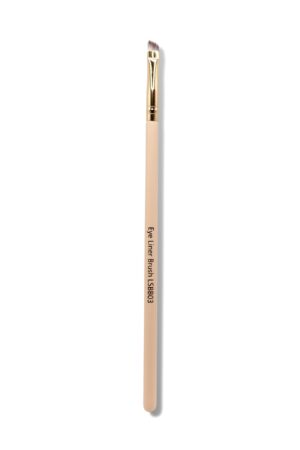
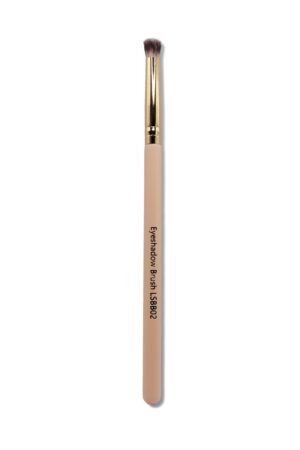
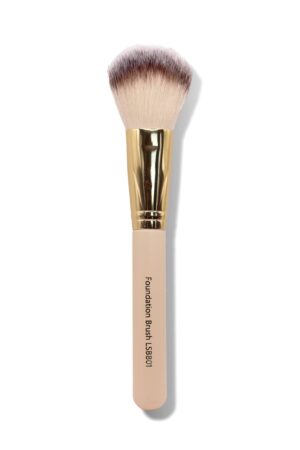
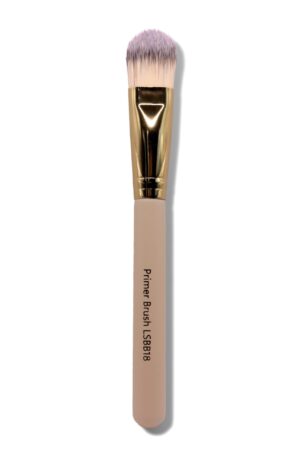
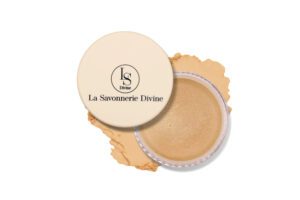



Copyright © 2024 La Savonnerie Divine | Marketing & Design Geek in NY 🗽